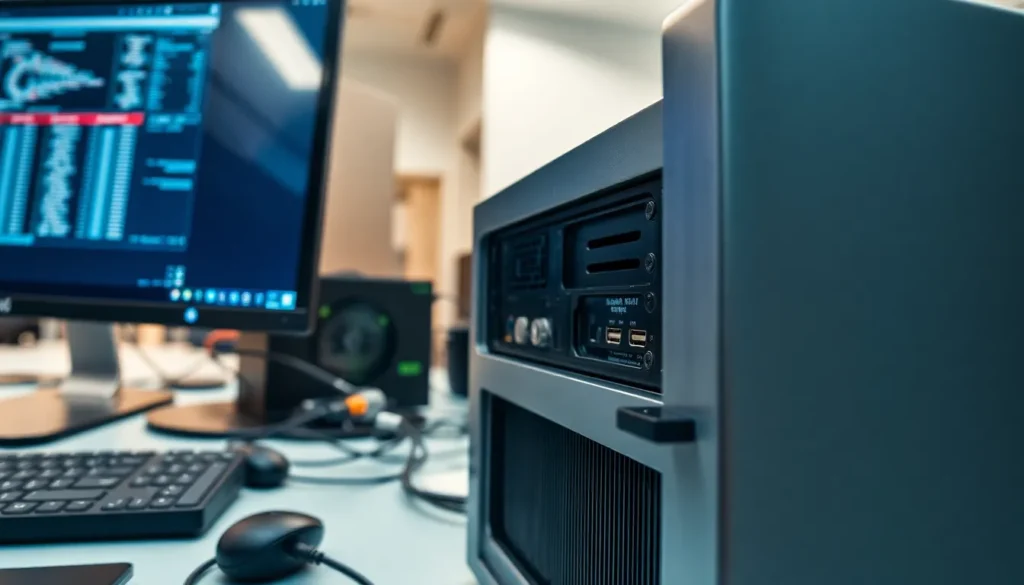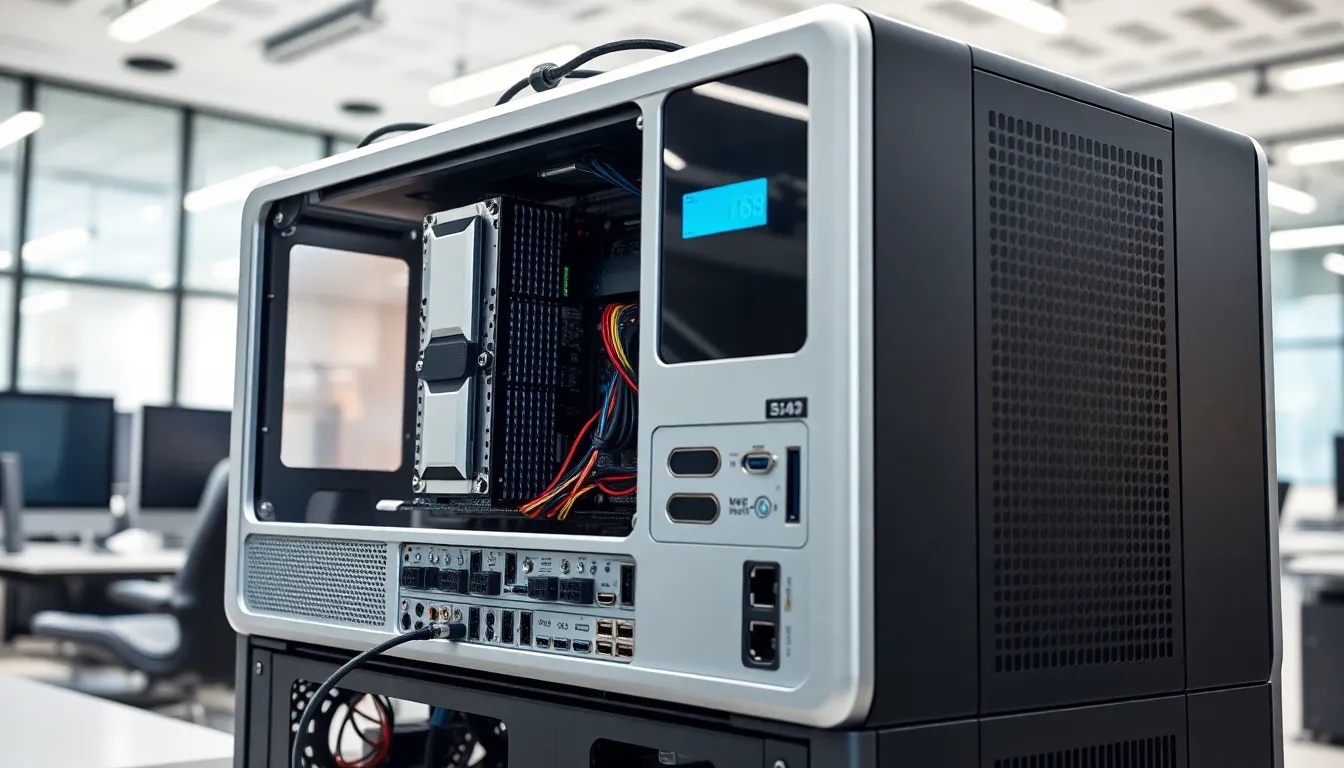Table of Contents
ToggleIn the world of global trade, understanding customs codes is crucial for businesses and importers. The code 8474911100 specifically refers to a classification within the Harmonized System, which plays a vital role in determining tariffs and trade regulations. This unique identifier helps streamline the importing and exporting process, ensuring compliance with international laws.
Navigating the complexities of customs classifications can be daunting. However, grasping the significance of codes like 8474911100 can empower businesses to optimize their supply chains and minimize costs. Whether dealing with electronic components or machinery, knowing the ins and outs of this code can lead to smarter decision-making and smoother operations in the competitive marketplace.
Overview of 8474911100
8474911100 refers to a specific customs code categorized under the Harmonized System. This code designates particular types of machinery, specifically those designed for data processing, which include devices like computers and peripheral equipment.
Definition and Classification
8474911100 falls under the broader classification of 8474, which pertains to machines for automatic data processing. More specifically, this subdivision includes units equipped with microprocessors or other processing units. Each classification within the Harmonized System helps determine applicable tariffs and trade regulations.
Importance in Trade
Understanding 8474911100 plays a crucial role in international trade. This customs code facilitates proper tariff determination and compliance with import/export regulations. Incorrect classification can lead to delays and increased costs for businesses. Knowledge of this code enables companies to optimize supply chains and enhance their competitive edge by minimizing tariffs associated with the importation of data processing equipment.
Key Features of 8474911100
The customs code 8474911100 encompasses specific machinery designated for data processing. Identifying key features is vital for understanding its applications and compliance with international regulations.
Technical Specifications
- Microprocessors: Devices under this code often integrate advanced microprocessors, contributing to high processing speeds and efficiency.
- Memory: Commonly equipped with substantial RAM and storage capacity, enhancing data handling capabilities.
- Input/Output Interfaces: Supports various I/O options, including USB, HDMI, and Ethernet ports, for seamless connectivity.
- Operating Systems: Typically runs on established operating systems, enabling compatibility with numerous software applications.
- Power Requirements: Generally operates on standard voltage ranges, ensuring compatibility with global power supplies.
Applications and Uses
- Computing Devices: Utilized primarily in computers, facilitating tasks ranging from basic computing to complex data analysis.
- Peripheral Equipment: Functions include printers and scanners, enhancing the capabilities of primary computing devices.
- Networking Equipment: Supports devices that manage data transfer and communication in networking environments, such as routers and switches.
- Industrial Use: Employed in manufacturing settings for machines requiring precise data processing capabilities.
- Educational Tools: Common in educational institutions, providing students with necessary resources for learning in technology-focused programs.
Market Analysis of 8474911100
The market for products classified under the customs code 8474911100 reflects dynamic trends and evolving competition, influenced by technological advancements and changing consumer demands.
Current Market Trends
Global demand for data processing machinery continues to rise, driven by digital transformation across various sectors. Organizations increasingly rely on high-performance computers, which enhances their operational efficiency. Key trends include:
- Increased Automation: Companies invest in automated systems that integrate advanced data processing machinery, leading to higher productivity rates.
- Remote Work Solutions: The shift toward remote work has boosted demand for versatile and powerful data processing devices, including laptops and desktop computers.
- Cloud Computing: A surge in cloud-based services promotes the development of more sophisticated data processing machines that support intensive applications.
- Sustainability Focus: Manufacturers adopt eco-friendly practices, including energy-efficient designs and recyclable materials, meeting environmental standards.
Competitive Landscape
The competitive landscape for machinery under code 8474911100 includes major players and emerging startups, each striving to capture market share. Key aspects of this landscape involve:
- Established Industry Leaders: Companies like Dell, HP, and Apple dominate the market, offering a wide range of data processing devices catering to various end-users.
- Innovative Startups: New entrants focus on niche markets, providing specialized data processing solutions and leveraging advancements in technology.
- Pricing Strategies: Competitive pricing is crucial, as businesses prioritize cost-effective solutions without compromising performance. Suppliers use a combination of competitive pricing and value-added services to differentiate themselves.
- Partnerships and Collaborations: Strategic alliances with software developers and cloud service providers enhance product offerings and drive innovation in the data processing market.
The interplay of these trends and competitive factors shapes the market dynamics for the customs code 8474911100, impacting businesses and their approaches to procurement and supply chain management.
Regulatory Considerations
Understanding regulatory considerations for customs code 8474911100 ensures compliance with international trade laws. Businesses must navigate specific requirements to facilitate smooth import and export processes.
Compliance Requirements
Compliance with the Harmonized System (HS) is critical for products classified under the customs code 8474911100. Businesses must adhere to accurate documentation, which includes invoices, packing lists, and certificates of origin. Accurate classification under the HS enables correct tariff applications and helps avoid penalties. Importers must also maintain compliance with safety standards established by regulatory agencies, including environmental and electronic waste regulations. Additionally, organizations may require certifications for energy efficiency or RoHS compliance, depending on the nature of their products.
Import/Export Regulations
Import/export regulations for customs code 8474911100 encompass various stipulations. Importers must obtain necessary permits and licenses to facilitate entry into the United States. Each country may impose specific duties and taxes based on classifications and values. Exporters must adhere to export control regulations, which include the determination of eligibility based on end-users and end-uses. Compliance with documentation requirements for international shipping is paramount to prevent delays. Regular audits by customs authorities can occur, reinforcing the need for meticulous record-keeping and adherence to all regulatory guidelines.
Conclusion
Navigating the complexities of customs code 8474911100 is crucial for businesses engaged in global trade. This specific classification not only influences tariff applications but also impacts overall compliance with international regulations. By grasping the significance of this code and its associated machinery, companies can streamline their operations and enhance their competitive advantage.
As digital transformation continues to reshape industries, understanding market trends related to this customs code will be vital. Businesses that prioritize compliance and stay informed about regulatory changes will find themselves better positioned to adapt and thrive in an ever-evolving landscape. Ultimately, a strategic approach to customs codes like 8474911100 can lead to more efficient supply chains and improved decision-making.




